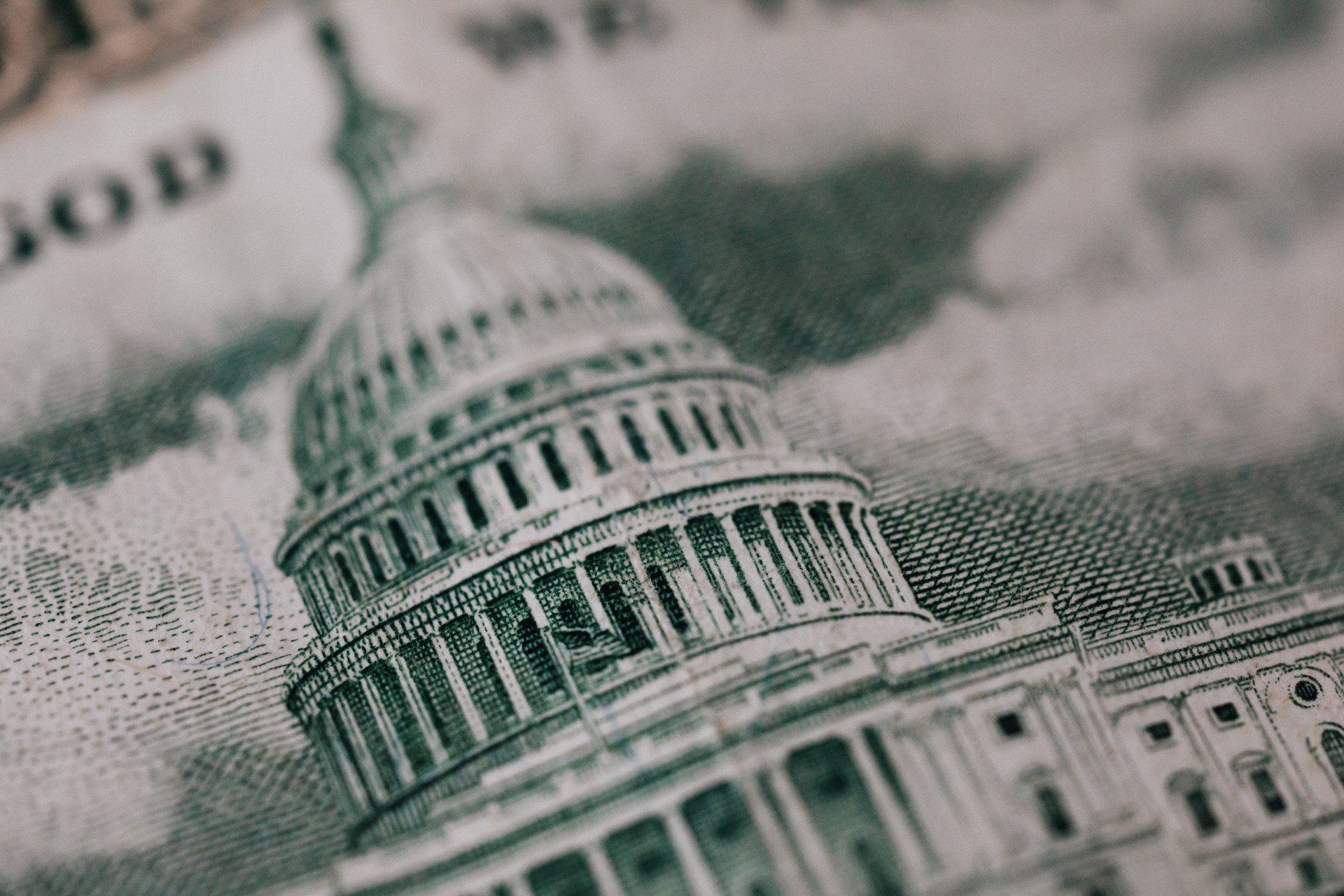The Infrastructure Bill is Messing With Your Crypto Taxes
The American federal government can be depended on for one thing: finding some way to tax the American people. Crypto taxes were an inevitability, all things considered. However, no one expected things to get as complex as they are now. At the moment, crypto is subject to
capital gains taxes because it is seen as property. That is still the case, but the Biden Administration’s new Infrastructure Bill is shaking things up- and not in a good way…

What happened?
On November 15th, President Biden signed the Infrastructure Bill into law. Within it, there is a section which requires cryptocurrency brokers to issue Form 1099-Bs to their customers for the 2023 tax year.
The regulators in Washington D.C. did this because they are under the impression that an influx of 1099-Bs would improve crypto exchange reporting, and thus pressure taxpayers into filing their crypto taxes. Taxpayers, who are already notorious for looking for methods to avoid cryptocurrency tax compliance, should find this process easier than trying to skirt the taxman. That’s what they think, at least.
However, the tax experts at YokeTax have noted that the Infrastructure Bill has completely ignored the intricacies of crypto. Because cryptocurrencies are built on the principles of decentralization and self-custody, Form 1099-Bs will be overwhelmingly ineffective. For taxpayers who do comply, however, the 2023 tax year will be an absolute nightmare. It might be best to consult with a tax pro now to take precautions.
What is Form 1099-B?
A Form 1099-B refers to the proceeds from a broker and barter exchange. Exchanges like Binance and Coinbase are expected to summarize their customers’ annual gains and losses. These are then subject to taxes, which is the primary goal of the Infrastructure Bill.
A Form 1099-B takes three forms: Copy A, Copy 1, and Copy B.
Copy A is filed by the exchange and sent to the IRS.
The exchange also files Copy 1, which is sent to whichever state the customer is in.
Finally, Copy B is sent to the customer (you) so you can file your taxes.
The information on Form 1099-B is meant to explain what you earned in the crypto market, as well as what you lost. To learn more about how crypto is taxed, read our 2021 crypto tax guide.
Why is this in the Infrastructure Bill?
This is all part of the IRS’s attempt to streamline their tax flagging operation. The federal government has lost millions (if not billions) in tax revenue due to crypto enthusiasts’ lack of tax compliance. They are trying to change that with their IRS Document Matching Program. It is an upfront alternative to tax audits. This way, instead of finding fraud or inaccurate reporting months after the fact, the IRS can now catch people in just a few days.
The DMP has been in place for decades, and stock brokers are well aware of it, but the IRS has been slow to connect crypto to it. The Infrastructure Bill has provided the IRS with just the right opportunity to do so.
This way, if you don’t report that $800 profit that you made on an altcoin, the IRS can check against the crypto exchange’s records and charge you a capital gains tax.
When a taxpayer is directly mailed a Form 1099-B, which not only shows his capital gains but also notes that the IRS has a copy, the taxpayer hesitates to underreport. In fact, noncompliance plummets to only 17% when taxpayers are shown a 1099-B. The IRS likes those odds in the stock space, so it assumes that this will translate well into the crypto space. ...It’s wrong, though!
Why the Infrastructure Bill will fail in the crypto space
If we’re being honest 1099-Bs do have a history of skyrocketing tax compliance. It makes sense that the federal government would assume the same would apply in the cryptocurrency space. However, the crypto space is a fundamentally dynamic environment.
Factor One: Anonymity
How can exchanges be expected to fill out 1099-Bs if they are built on a foundation of anonymity? Smaller exchanges like Uniswap do not collect any customer information (name, address, social security number, etc) from its users. A 1099-B cannot be filled out without this information!
Say you purchased $500 worth of Bitcoin on Uniswap and transferred it to an exchange which does track user information, like Kraken. If you sell it on Kraken for $1,000, the Infrastructure Bill requires Kraken to issue a 1099-B. However, Kraken has no idea that you bought that Bitcoin for $500, and thus this information cannot be reported.
Factor Two: Self Custody
There is also the issue of self custody. Unlike other securities, it is incredibly easy to transfer cryptocurrencies between several exchanges, both national and foregin. All it takes to create an incomplete 1099-B is for a user to put their crypto in the hands of a foreign exchange. This is all because crypto is built on the privacy and security of the user. Nobody is meant to tell you where you can and cannot move your crypto, which means it’s harder for a government authority to control its flow (and taxation). In addition, moving crypto from exchange to crypto ledger, and vice versa, makes things even more anonymous.
Say you bought $5,000 worth of Bitcoin three years ago on a small exchange which did not collect your taxpayer information. If, in 2022, you send this Bitcoin to Kraken and sell it for $35,000, you would owe $30,000 in capital gains taxes. ...However, because Kraken has no idea what you bought the Bitcoin for, it cannot report that on a 1099-B.
Again, the Infrastructure Bill falls on its face by trying to treat crypto like every other security it’s seen, when it is fundamentally different. This will fail in the crypto space- undoubtedly- but how will it fail you, the taxpayer?
What taxpayers can do about the Infrastructure Bill on their crypto taxes
There’s nothing guaranteed in life but death and taxes, and the future looks grim.
The immediate effect of the Infrastructure Bill on your crypto will be an influx of 1099-Bs. Because exchanges will be grasping at straws to try and find information worthy of reporting, these 1099-Bs will be incomplete. Taxpayers who are not careful will likely end up overpaying on their taxes in an attempt to stay on Uncle Sam’s good side.
Some taxpayers will try to comb through their exchange accounts and records in order to figure out exactly how much they actually owe in taxes. However, it’s all too likely that this information is going to contradict the incomplete 1099-Bs which exchanges will be sending to the IRS and state governments.
This will trigger the IRS Document Matching System and lead to various notices and consequences, including more taxes.
Our Solution
We don’t recommend not paying your taxes. One way or another, Uncle Sam is going to get his cut. We would rather that you give him a smaller piece of your profits than he wants, though.
If you are using multiple exchanges at the moment, it is best to consolidate and bring your crypto to a single exchange. This will make tax reporting a lot simpler in the long run. If you haven’t connected with a tax professional to iron out your unique situation yet, now is the time to do it.
In addition to helping you pay less in taxes, Yoketax has methods to prevent you from paying crypto taxes altogether. Read up on our favorite tax loophole as soon as you can.
The government is looking for ways to tax you with its new Infrastructure Bill, but it doesn’t have to take all your money. Sit back, relax, and let us handle the numbers.



